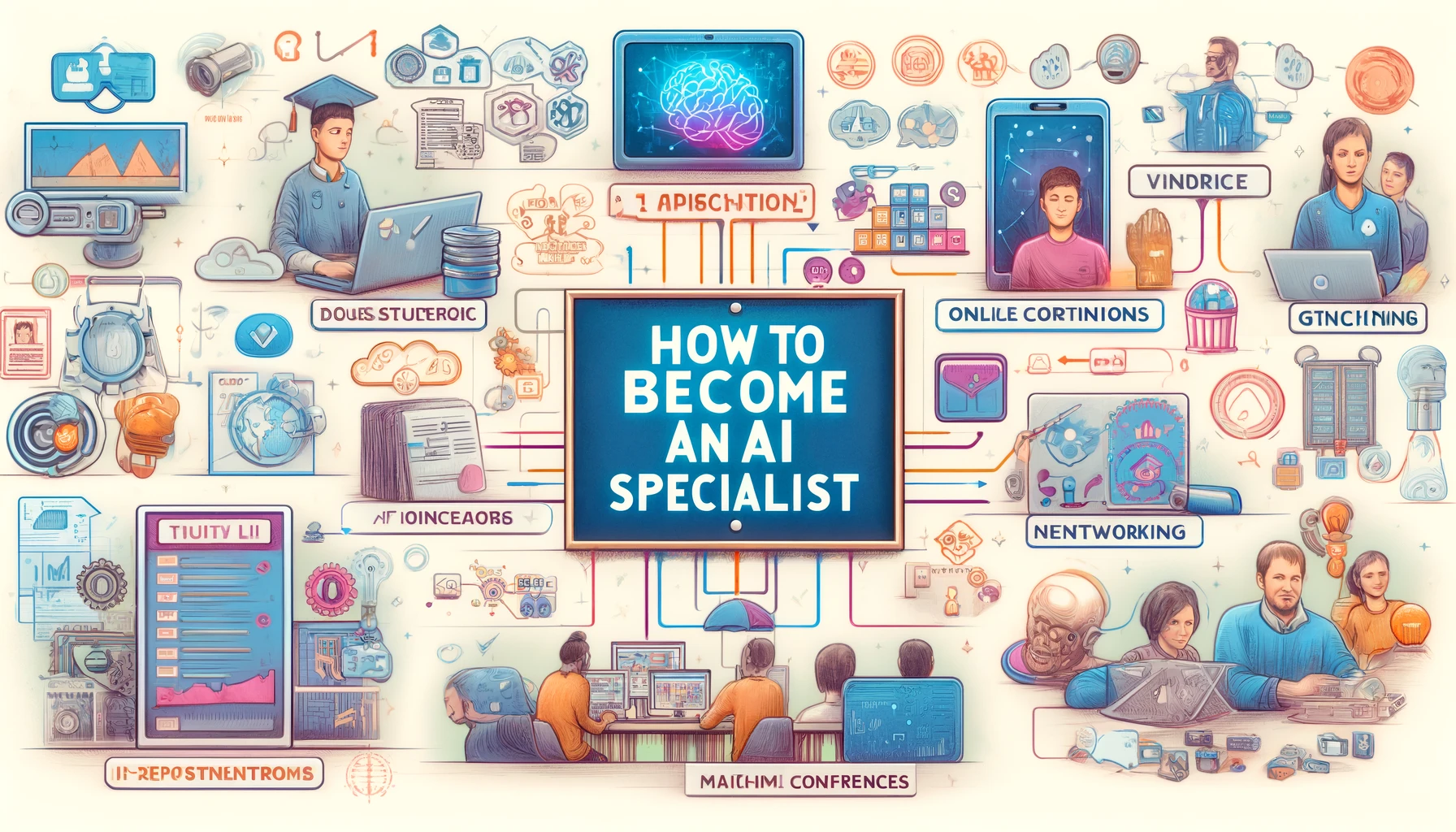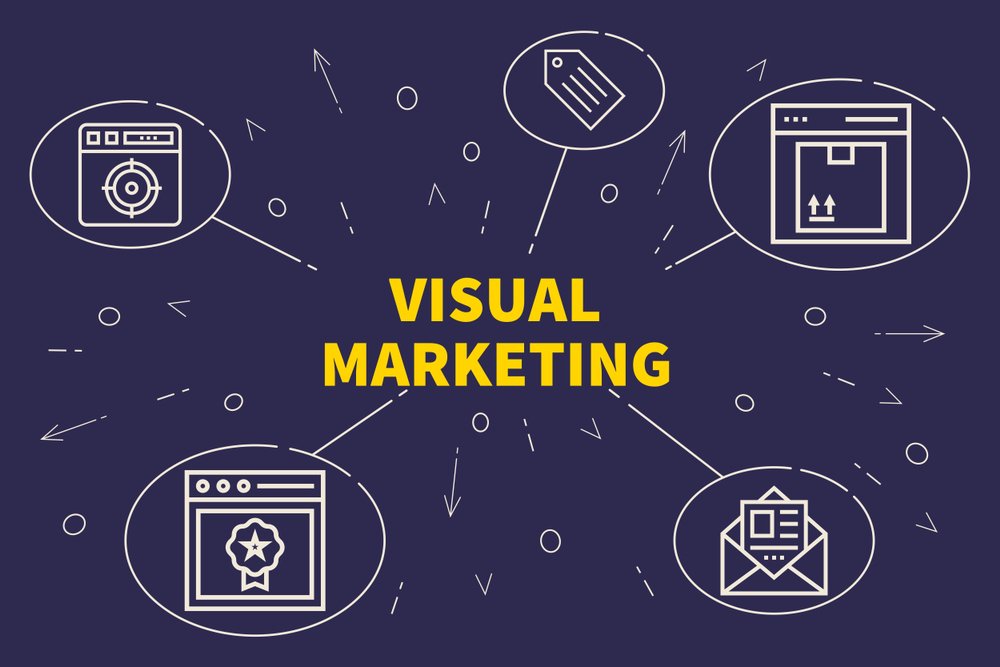How To Become An AI Specialist – A Guide

We’re living in an amazing time where people are constantly discovering and inventing new ways to make life easier and better. Every day, new technologies, languages, and products appear, along with cool innovations that touch everything around us—whether at home, outside, or at work. Our daily lives are wrapped up in digital methods and tools more than ever before.
Artificial Intelligence (AI) has found its way into nearly every industry—cars, healthcare, education, aviation, filmmaking, you name it. And honestly, it’s made how these industries operate way stronger and smoother.
When you see AI in movies or documentaries, you often picture robots and high-tech machines. But in reality, AI is much more than that. Want to know something interesting?
All of these AI advances come from people just like us. The big difference? They’ve learned cutting-edge skills that make them stand out in their fields—and the good news is, you can learn these skills too.
Luckily, we’re here to guide you through how to become an AI specialist, which could seriously boost your career in a productive and profitable way.
But before we jump into this game-changing guide, let’s take a quick look at the booming AI industry and what it means to be an AI specialist. Then we’ll explore the key factors and steps you need to take to build a successful career in Artificial Intelligence.
What Is Artificial Intelligence?
AI is basically the real deal behind what used to be just a dream. It’s the tech that lets machines act like humans—learning, solving problems, making decisions—by combining important programming skills with smart hardware.
An AI-powered device can analyze its environment and choose the best response based on stored data. In other words, these machines can mimic human intelligence in many ways.
Thanks to AI’s rise, we can now work side-by-side with machines and even have them handle everyday human tasks. This is truly a breakthrough in programmable systems.
The cool thing is AI devices can learn from experience, make generalizations, and reason out solutions—just like we do.
The Rapid Rise of Artificial Intelligence
AI is definitely the next big thing in today’s world. Humans have always imagined a tech-driven future, and now it’s happening.
We’re breathing cleaner air, getting around in self-driving cars, and flying faster than ever—all thanks in part to AI improving and simplifying our lives.
Let’s check out some key areas where AI is growing fast:
Business and AI:
Robotic process automation handles repetitive tasks usually done by humans, helping businesses provide better customer service. Job automation is a hot topic among academics and IT consultants because AI is reshaping the way businesses run, from the office to home.
AI in the Classroom:
AI speeds up learning by using smart tech that boosts productivity. Imagine a teacher handling 50 students at once without missing a beat—AI makes this possible. Robots are becoming part of education, helping students learn deeply and keeping them motivated.
AI-Powered Vehicles:
The auto industry has transformed completely thanks to AI. Cars that drive themselves, equipped with radars and cameras, gather data to find gas stations, plan the quickest routes, and more.
AI in Healthcare:
Apps like Bill Screen, NuMedi, and Medecision help diagnose health issues and suggest treatments. AI is also tackling tough diseases like cancer, improving accuracy in diagnosis and care far beyond traditional methods. With AI’s learning algorithms, healthcare is becoming more effective and personalized.
Detecting Fraud:
Financial institutions use AI to spot, block, and report fraud in real time. This tech makes online banking safer and smarter than ever.
We’re seeing AI breakthroughs every day—things once thought impossible are now reality. In healthcare, AI-assisted surgeries reduce risks and improve outcomes, proving that what once seemed experimental is now mainstream.
Why AI Is a Great Career Choice
AI is revolutionizing the IT world and driving innovations like computer vision and natural language processing. It’s transforming industries and communities alike—and it’s here to stay.
With so many businesses adopting AI, there are tons of job openings but not enough skilled people to fill them. The upside? If you have the right skills, job security and good pay are pretty much guaranteed.
There are exciting specializations within AI too, like machine learning, where robots learn and improve on their own. This area alone is expected to grow massively and generate billions in value.
AI professionals work across fields—from self-driving cars and business analytics to healthcare diagnostics and manufacturing automation. Plus, the average AI specialist can earn a great salary while staying connected to the latest tech and breakthroughs every day.
How to Become a Successful AI Specialist
Starting your AI journey is a smart move, but many people hesitate because they wonder:
- What should I do first?
- How do I even start?
- Am I capable of doing this?
- Will it really benefit me?
- What technical skills do I need?
If these questions sound familiar, don’t worry. Let’s break them down one by one so you feel confident about beginning your AI career.
What to do first?
Decide you want to pursue AI and commit to it. Set clear goals, make a study plan that fits your schedule, and stay consistent.
How to start?
Build a solid foundation in computer science—maybe as an engineer or developer. You’ll need strong coding skills and a good grasp of computer hardware basics. Then dive into AI fundamentals and really get comfortable with the core concepts.
Am I capable?
Absolutely! Remember, progress depends on the effort you put in. Believe in your ability to learn and grow in this field.
Will it benefit me?
Definitely. AI skills not only open doors to lucrative jobs but also sharpen your problem-solving and data handling abilities. A background in computer science will help you make the most of this.
What technical skills are essential?
You’ll need good programming skills—languages like Java, C++, R, and especially Python. Understanding math, analytics, algorithms, and machine learning is crucial. Familiarity with big data tools like Hadoop, MongoDB, and Apache Spark will also come in handy. And knowing deep learning methods helps you handle large datasets effectively.
What about soft skills?
Besides tech skills, strong problem-solving, communication, and time management are vital. AI specialists work with diverse teams, so being able to explain ideas clearly and think creatively to solve problems makes a big difference.
Building Your Skills
AI isn’t just theory—you need hands-on practice. Start by taking courses in computer science and AI, connect with professionals in the field, and clear up the basics.
Consider enrolling in diploma or certification programs online. Join workshops or internships where you can get real-world experience and learn from experts.
Working on team projects, following industry blogs, reading books, and staying updated on AI trends will help you grow. Eventually, tackle a full project—from data processing to model building and evaluation—to polish your skills.
Job Opportunities in AI
AI jobs are growing fast and becoming more diverse. Roles include researchers, data scientists, software engineers, and more. As AI tech advances, you’ll find even more exciting opportunities.
Demand for IT pros who understand AI is rising because companies want to integrate it into their operations.
Wrapping Up: Join This Fast-Growing Industry
Artificial Intelligence is one of the fastest-growing industries today. With the right education—like a Master’s or Doctorate—you might join groups like the BCS Specialist Group on AI, attend conferences, and even work internationally.
AI is moving quickly, so staying updated with the latest research and tech is crucial. The number of jobs keeps growing as AI becomes vital in healthcare, education, business, and beyond.
There’s also growing attention on AI’s social, cultural, political, and economic impacts, so experts need to consider all these aspects.
If you’re thinking about a career in AI, now’s the perfect time to start. The field is expected to explode over the next decade, giving you tons of paths to explore and grow.



